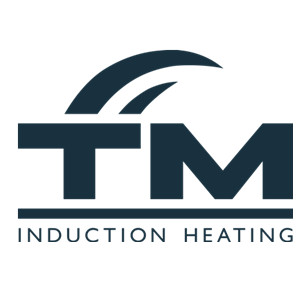TM Induction Heating Introduction
2021/4/11
TM INDUCTION HEATING
![]()
TM Induction Heating was founded in 1992 and has grown to become a leading supplier of induction heating equipment for the automotive, heavy-duty vehicle, railway, windpower, machine building, civil engineering, mining, process and other industries. TM Induction Heating provides its clients with all the benefits of a fast, efficient, contactless and safe heating process that can be easily integrated in production lines. The product portfolio includes low and mid frequency inductionheating systems for heat treatment of bearings, gears, bushings,pulleys, couplings, etc.
TM Induction Heating delivers a comprehensive range of standard heaters as well as custom systems which are completely designed to client specification. Building on extensive experience, a worldwide sales & service network and its certified quality systems (ISO 9001:2008 and UL by TüV Rheinland, CE by Certification Experts), TM Induction Heating can offer clients around the globe the right solution to a large variety of industrial heating problems.
ADVANTAGES
The essential feature of the induction heating process is that the heat is generated inside the workpiece. No external heat transfer through either conduction or convection is required. The energy is transferred by means of an electromagnetic field, hence there is no contact. For the heating of metal objects the technique of induction heating offers a number of advantages compared to other (conventional) technologies such as flame/torch/furnace/oil bath heating:
• High speed
Applying power leads to immediate heating, without any start-up time causing a delay in the process.
• High efficiency
The heat is generated directly inside the workpiece, without the need for external heat transfer, which keeps energy losses low. The non-productive heating up or cooling down of any equipment is eliminated. When no workpieces have to be processed, the primary current is switched off immediately.
• High cleanliness
There is no contact between the heating source (the primary coil) and the workpiece,which prevents corrosion, contamination by residues, or degradation, for example by a flame.
• High safety
Induction heating can be designed as an intrinsically safe process. There is no external heat source that requires special safety precautions. No oxygen is consumed from the environment, neither are any fumes emitted.
• Easy control
Induction heating is all-electric, which makes it a highly deterministic process. It allows for easy (remote) control including sensor integration and data logging.
• Consistent quality
User-friendly process control can ensure consistent quality of all workpieces. Heating over a specified, well-controlled trajectory will yield stress-free products.
• Easy integration in production
Induction heating equipment requires a modest footprint and provides easy access for the exchange of workpieces. Therefore, the process can be easily integrated in production lines. Moreover, no special precautions such as for operator safety or fume extraction are required.
Secure Rail Transit Technology (Shanghai) Co., Ltd. all rights reserved 沪ICP备2021001858号-1 disclaimer

